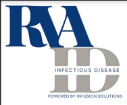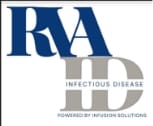Monoclonal antibodies (mAbs) are laboratory-produced molecules that can precisely target and neutralize specific pathogens, such as viruses or bacteria. Their importance in the future of infectious disease management is growing rapidly, especially as we face an increasing threat from emerging pathogens and antimicrobial resistance.
Unlike traditional treatments, mAbs offer highly specific and immediate immune protection. They can be rapidly developed once the genetic or structural details of a pathogen are known, making them valuable tools in responding to outbreaks, such as Ebola, COVID-19, or novel influenza strains. Monoclonal antibodies can be used both prophylactically—to prevent infection in high-risk populations—and therapeutically to reduce disease severity and complications.
As resistance to antibiotics and antivirals rises, mAbs provide an alternative mechanism that pathogens may find more difficult to evade. Advances in antibody engineering, delivery methods, and cost reduction are making mAb therapies more accessible and scalable. In the future, monoclonal antibodies could become a cornerstone of our defense strategy against emerging and re-emerging infections, especially in situations where vaccines are unavailable or ineffective. Their adaptability and precision make them a critical part of pandemic preparedness and the evolving landscape of infectious disease treatment.


